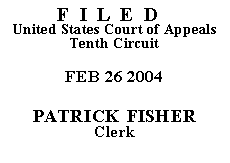

Steve and Bana Bogdahn appeal the district court's entry of summary judgment in favor of American Economy Insurance Company. Pursuant to 10th Cir. R. 27.1 and Okla. Stat. tit. 20, §§ 1601-11, we certified a question of state law to the Oklahoma Supreme Court. That question has been answered and, exercising our jurisdiction pursuant to 28 U.S.C. § 1291, we affirm.
Hillcrest Pharmacy, Inc., is a corporation with its principal place of business in Woodward, Oklahoma. Since at least the late 1960s, Hillcrest Pharmacy has purchased commercial liability insurance through Figley Salz & Co., Inc., a local insurance agency. In 1990, Figley Salz began procuring insurance for Hillcrest Pharmacy from American Economy. Shortly thereafter, the sole owner of Hillcrest Pharmacy, Lanny Duckett, sold his interest in the corporation to the Bogdahns. The Bogdahns chose to continue insurance coverage through American Economy.
The policy issued by American Economy listed Hillcrest Pharmacy as the sole "named insured" and listed the "form of business" as a "corporation." App. at 50. The policy stated that "[t]hroughout this policy the words 'you' and 'your' refer to the Named Insured." Id. at 52. In addition to providing liability coverage for Hillcrest Pharmacy's vehicles, the policy contained an endorsement providing uninsured motorist (UM) coverage. That endorsement contained the following relevant provisions:
A. COVERAGE
We will pay, in accordance with Title 36, Oklahoma Statutes, all sums the "insured" is legally entitled to recover as compensatory damages from the owner or driver of an "uninsured motor vehicle." The damages must result from "bodily injury" sustained by the "insured" caused by an "accident."
B. WHO IS AN INSURED
1. You.
2. If you are an individual, any "family member."
3. Anyone else "occupying" a covered "auto" or a temporary substitute for a covered "auto." The covered "auto" must be out of service because of its breakdown, repair, servicing, "loss" or destruction.
4. Anyone for damages he or she is entitled to recover because of "bodily injury" sustained by another "insured."
Id. at 71.
On August 19, 2000, the Bogdahns' minor son, Blake, was seriously injured when he fell from the back of an all-terrain vehicle (ATV) driven by a friend, who was also a minor. The ATV was owned by the friend's parents and was apparently uninsured. The Bogdahns, through their attorney, requested coverage for Blake's injuries under the UM provisions of the American Economy policy issued to Hillcrest Pharmacy. American Economy denied coverage, concluding the ATV was not a covered vehicle under the policy and that Blake was not an "insured" under the UM provisions of the policy.
American Economy filed this diversity action seeking a declaration that it was not required to provide coverage under the UM provisions of the policy for Blake's injuries. The Bogdahns filed a counterclaim seeking reformation of the policy in order "to comply with the intentions and reasonable expectations of the parties." App. at 15. Alternatively, the Bogdahns asked that American Economy "be required to answer in negligence for all damages resulting from its failure to obtain coverage as requested and reasonably expected by" the Bogdahns and Hillcrest Pharmacy. Id.
American Economy moved for summary judgment, arguing the Hillcrest Pharmacy policy did not provide UM coverage for Blake's injuries, and that no ground for reformation or evidence of constructive fraud or negligence existed which would require that UM coverage be provided. In granting summary judgment in favor of American Economy, the district court concluded that Blake was not an "insured" under the UM provisions of the policy. Further, the court concluded there was no basis under Oklahoma law for reforming the policy as requested by the Bogdahns.
After initially reviewing the parties' appellate pleadings, we certified the following question to the Oklahoma Supreme Court:
Whether Blake Bogdahn was a person insured under the uninsured motorist provisions of the American Economy policy issued to Hillcrest Pharmacy, Inc. as the named insured?
The Oklahoma Supreme Court rephrased the certified question into two questions:
1. Is the definition of an insured in the UM endorsement of the American Economy policy issued to Hillcrest Pharmacy, Inc. ambiguous, such that the doctrine of reasonable expectations can be applied to define Blake Bogdahn as an insured?
2. If so, does the statutorily mandated UM selection/rejection form create a reasonable expectation of coverage for Blake Bogdahn, such that the policy must be reformed to provide such coverage?
American Economy Ins. Co. v. Bogdahn, No. 99,392, 2004 WL 237423 at *1 (Okla. Feb. 10, 2004). In answer to the first question, the court concluded that the "definition of an insured in the UM endorsement of the American Economy policy issued to Hillcrest Pharmacy, Inc. is not ambiguous and therefore the doctrine of reasonable expectations cannot be applied to define Blake Bogdahn as an insured." Id. at *5. In light of this answer, the court found it unnecessary to address the second question.
Reviewing the district court's grant of summary judgment de novo, see Gwin v. Awmiller, 354 F.3d 1211, 1215 (10th Cir. 2004), it is apparent that the district court's decision is consistent with the Oklahoma Supreme Court's answer to our certified question. Specifically, the district court correctly concluded that Blake Bogdahn was not an "insured" under the UM provisions of the policy at the time he sustained his injuries and, because the policy language was not ambiguous, there was no basis for reforming the policy to provide coverage for his injuries. See Max True Plastering Co. v. U.S.F.&G. Co., 912 P.2d 861, 864, 868 (Okla. 1996) (discussing the "reasonable expectations doctrine" and noting reformation is available under the doctrine only when the coverage language of a policy is ambiguous).
AFFIRMED.
Entered for the Court
Mary Beck Briscoe
Circuit Judge
*.This order and judgment is not binding precedent, except under the doctrines of law of the case, res judicata, and collateral estoppel. The court generally disfavors the citation of orders and judgments; nevertheless, an order and judgment may be cited under the terms and conditions of 10th Cir. R. 36.3.